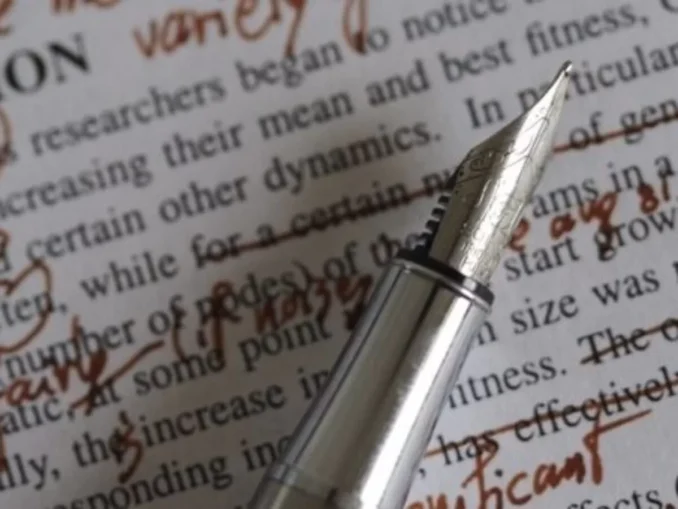What are your ideas worth if you can’t put them into words? Crafting a well-structured and coherent essay is essential for acing that class assignment or a competitive test like the SAT. However, the heart often sinks at the thought of the blank page staring back at you.
While it’s undeniable that not everyone is blessed with the innate talent of essay writing, and the task can feel like an uphill battle, how many of us have tried and not been successful? None, right?
It’s no secret that academic writing is an integral part of your education, from persuasive essays to literary analysis. And what makes this stressful and anxiety-inducing task easy is learning and honing the academic writing skill with dedication, practice, and a few key strategies.
So, let’s get ready to take your writing skills to the next level as we explore proven essay writing tips that will help you become eloquent at academic writing, empowering you to present your ideas with clarity, coherence, and impact.
1. Comprehending Your Essay Prompt

Source: freepik.com
Understanding the prompt is the first step in creating a successful essay. This entails thoroughly reading the question and ensuring that you comprehend what is being requested of you. Unfortunately, several students make the mistake of rushing into writing before completely comprehending the prompt, resulting in a poorly written essay. Instead, take your time reading the prompt and making sure you grasp the guidelines and expectations.
2. Creating a Framework/Outline
The next stage is to build an outline once you have grasped the prompt. This will aid in the organization of your thoughts and ideas, as well as the creation of a clear and logical framework for your essay. An introduction, body paragraphs, and a conclusion should be included in your outline. You should include some background information on the issue and express your thesis statement in the introduction. Each body paragraph should address a specific topic or argument and present evidence to support your statements. The conclusion should repeat your thesis statement and summarize your essential points.
3. Craft Your Argument With a Thesis Statement
The fundamental point of your essay is your thesis statement, which should be precise and simple. When writing your thesis, ensure that it is also quite controversial, which means that alternative viewpoints or interpretations of the matter should be possible. Mention your thesis statement in your introduction to serve as a guide for the remainder of your essay.
4. Use Evidence to Support Your Claims
One of the most important aspects of a successful essay is the utilization of evidence to back up your statements. Statistics, facts, or instances from your personal experience can all be included. When utilizing evidence, make sure it is relevant to your argument and that you correctly cite your sources. This will reinforce your argument and make your writing more persuasive.
5. Edit and Revise Your Essay

Source: youtube.com
Essay writing, like sculpture, requires not just inspiration and work but also meticulous editing and rewriting. It is vital to take a step back and look critically at your work to evaluate where improvements might be made. By editing and revising, you may strengthen your ideas, simplify your arguments, and produce a polished outcome that truly shines.
When you edit and rewrite your essay, you can see inconsistencies, typos, and other issues that may have gone missing during the writing process. It allows you to develop your language skills, clarify your points of view, and strengthen your arguments. It’s a chance to work out any flaws and ensure your essay is clear, concise, and intriguing. You might also need a professional editor to read your essay, provide criticism, and turn your essay from mediocrity to extraordinary.
6. Practice Indeed Maketh Perfect
Most importantly, the best technique to improve your essay writing skills is to practice. The more you write, the more proficient you will become. This entails writing at every opportunity, whether for academic assignments, competitive examinations, or personal projects. The more you practice, the more at ease you’ll get with the writing process, making it simpler to compose eloquent essays.
7. Read Extensively
One of the most effective strategies to enhance your academic writing abilities is to read widely. This entails reading books, articles, and essays on a broad range of subjects. Reading will help you expand your vocabulary, enhance your grammar and sentence structure, and introduce you to other writing styles without limiting your horizons.
8. Learn From Analyzing Other Essays
In addition to reading extensively, you should study previous essays to discover how they are constructed and the author’s tactics to convey their case. Search for well-written and convincing writings, and try to figure out what makes them so. This will assist you in developing your personal writing style and improving your ability to create persuasive essays.
9. Be Receptive to Feedback/Criticism

Source: linkedin.com
Receiving comments on your writing is essential for improving your essay writing skills. This includes asking your professors, peers, or even a professional reviewer to examine and give constructive comments on your work. Feedback can help you discover areas for improvement, such as organization, clarity, and evidence utilization. It can also assist you in identifying your strengths so that you can capitalize on them in the future.
10. Time Yourself
Timed essays are an important aspect of many competitive examinations, such as the SAT, IELTS, and many more. It is critical to practice writing under time constraints in order to prepare for these sorts of essays. This entails setting a timer and composing an essay within a specific time frame. Timed writing can help you improve your ability to write fast and efficiently while retaining a clear and logical argument.
11. Take Technological Advantage
There are several technical tools available to assist you in becoming a better essay writer. Grammar checkers, such as TRINKA, can assist you in identifying grammatical and spelling issues in your work, whilst citation generators can assist you in creating appropriate citations for your sources and enhancing your writing.
Becoming a better essay writer is a breeze – said no one ever. It takes practice, time, and a lot of patience. Begin by comprehending the question, generating an outline, developing a clear thesis statement, using evidence to support your arguments, editing and reworking your work, and reading widely.
While you’re at it, why not examine other essays, get comments, practice timed writing, and use technology? Most key, be focused and avoid distractions at all times. Piece of cake, right? So, get started with the whipping of the cream (read ideas)!





